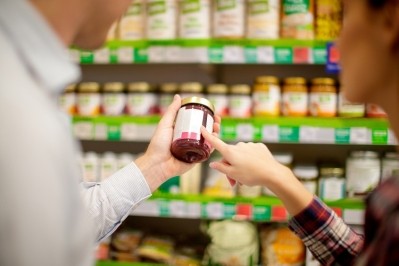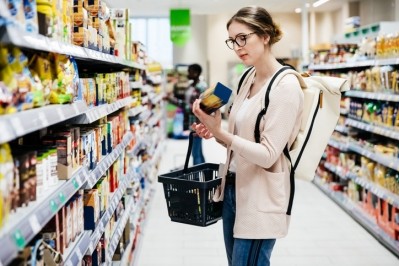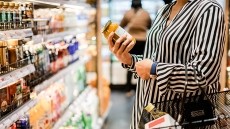Environmental labelling gathering pace? French Government joins Foundation Earth

The French Government’s Vincent Colomb joins a Dutch leading expert Dr Koen Boon and the top UK food scientist Professor Chris Elliott on the committee, marking an increased level of collaboration between the most advanced European initiatives, to support the mission Foundation Earth has set on impactful, harmonised ecolabelling.
Alongside the new appointment to the Foundation Earth Scientific Committee, which already includes other experts in sustainability, ecolabelling and consumer behaviour, Foundation Earth is announcing intentions to initiate a R&D programme designed to close the remaining gaps between its own method and the method being led by the French Government.
It is inviting expressions of interest for potential partners and supporters for the R&D programme, which it is hoped will be the next substantial step towards agreeing a single, harmonised and optimum environmental labelling system for food and drink across the European continent.
Vincent Colomb from ADEME, the French Agency for Ecological Transition is an accomplished environmental expert and has been leading the French Government’s efforts in the world of ecolabelling.
“Broader and more reliable environmental information is expected by many companies and consumers worldwide,” he said. “We are in an exciting time of experiments and testing, with access to more and more powerful assessment tools and data access. ADEME shares Foundation Earth’s science-driven vision and transparency principles. I am very glad to join this initiative and to share experience with European and international partners, joining efforts to speed up the shift towards a more sustainable food system.”
“Moving towards true harmonisation will be best achieved by joining forces and working together towards a common goal,” added Prof Chris Elliott OBE of Queen's University Belfast, Chairman of Foundation Earth’s Scientific Committee. “That is why Foundation Earth is taking a leadership role to coordinate with other leading ecolabelling initiatives across Europe, such as France and The Netherlands, promoting knowledge sharing and coordination at scale.”
Proponents believe Environmental labelling of food and drink products is essential in helping consumers make more informed choices, as well as producers who are given the information they need to innovate in a more sustainable way.
Foundation Earth formed in 2021 with the backing of global food and drink giants Nestlé, Tyson Foods, PepsiCo, Danone, Starbucks, Co-op, Sainsbury’s and M&S.
Its plans for harmonisation have been hindered by a proliferation and disparities between existing methods and labels. It’s estimated there are over 120 different types of front-of-pack labels in use on food and drink products globally, all offering to provide shoppers with greater information about the environmental footprint of food.
On top of Foundation Earth, there is Eco-Score, (courted by big names in European retail such as Colruyt and Lidl) and Planet-Score in France.
Individual countries are eyeing their own eco-labels too. For example, Denmark is investing DKK 9m (€1.2m) in the development of a government-run climate label for food.
The eco-labels also all measure slightly different things in slightly different ways. For example, all are based on lifecycle analysis (LCA) methodology, but this can be sourced from different data sets. Planet-Score, meanwhile, is keen to go beyond LCA methodology and address other factors such as pesticide use, climate impact, biodiversity and animal welfare on its labels.
Foundation Earth has previously complained this flood of groups using different methods when calculating the climate impact of a product risks leading to more confusion among consumers and industry players.






























